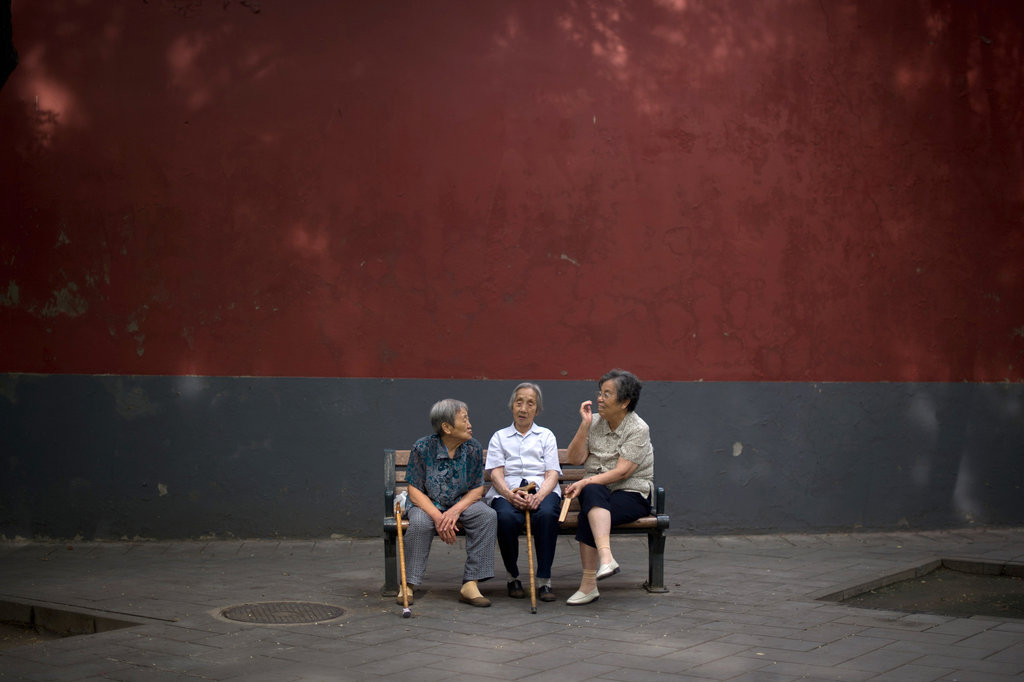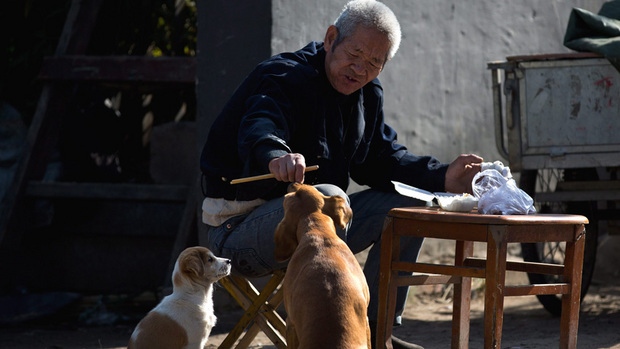How A Chinese Village 'Treats' People Who Neglect Their Ageing Parents
A case of good intention but bad execution?
In China, there's a growing concern over adult children neglecting their ageing parents. While respect for the elderly is still deeply etched in the Chinese psyche, traditional values like 'filial piety' have been weakened by the transformation of Chinese society over three decades of reform and the country's rush to modernity.
Filial piety is a virtue of respect for one's parents, elders, and ancestors.
In Chinese culture, it's the most important virtue to be cherished throughout the span of one's parents' lifetime. Being a filial son is the uppermost duty of any Chinese son.
However, because the current generation is more focused on their careers than caring for parents, the Chinese government — in order to deal with a problem that's caused by its own national policies such as the draconian one-child policy which has resulted in a dwindling workforce and a rapidly ageing population — has taken the legal way.
In 2013, it passed a law called "The Protection of the Rights and Interests of the Elderly People Bill" requiring that adult children provide mental support, in addition to financial support and life care, to their parents once they reach the age of 60.
While compelling adult children to care for their ageing parents by the use of the law has come into criticism on Chinese social media sites, such a measure is a key indicator of the level of concern in the Chinese society about who can care for the growing ranks of elderly
“The intention is good, but an unenforceable law seems like mixing law and ethics,” wrote popular newspaper columnist and social commentator Yao Bo.
Regardless of its efficacy, the law has nevertheless succeeded in drawing attention to the plight of elderly parents, who increasingly are left to fend for themselves as their children pursue opportunities elsewhere.
The one-child policy has exacerbated the situation, demographic experts say, by reducing the number children available to visit and care for a family’s elder members.
 wsj.com
wsj.com
In a move that takes the law a step further, a small Chinese village, Huangfeng, in the south-western Sichuan province has decided to name and shame people who do not care for their ageing parents
The regulations — to force offspring to take their responsibilities seriously — were drawn upon after elderly people of the village raised concerns that they were not being treated well by their offspring.
"Filial piety is China's greatest virtue," said Zhang Yiping, local party village secretary.
"And Chinese people also hate losing face, so making their bad behaviour public will make them ashamed and persuade them to change their ways," he added.
Now those considered guilty are shamed by plastering their pictures on billboards.
A board in Huangfeng village, listing regulations including rules against not caring for parents.
Image via Sichuan News Website via The TelegraphAnd the village has no plan to just stick to naming and shaming
While at the moment their names and photos along with their personal details and wrongdoings in how they treated their ageing parents are put on the public billboard, next year the village is planning to take their "name and shame" campaign a stage further.
“We are planning to shame villagers who don't fulfil filial duties on loudspeakers from January,” Mr. Zhang said, adding that the rules don't violate people's rights to privacy.
"The rules were approved at the village committee by our representatives, so it is perfectly legal,” he was reported as saying by The Telegraph.
An elderly Chinese man feeds stray dogs as he has breakfast along a Hutong alley in Beijing.
Image via Andy Wong/Associated Press via CBC News

